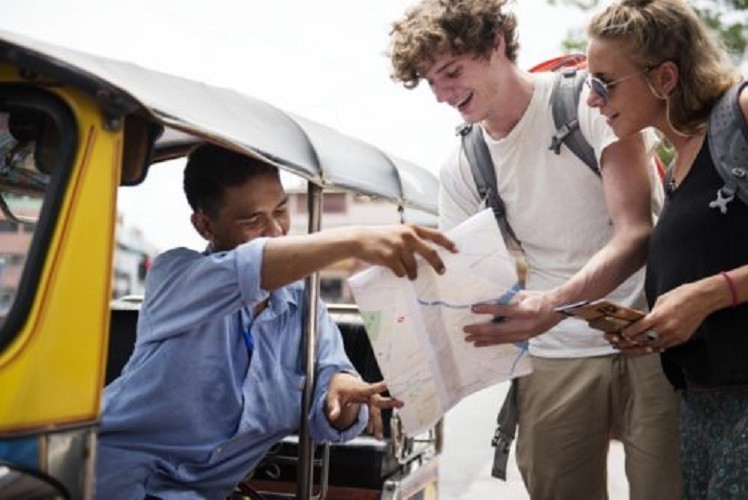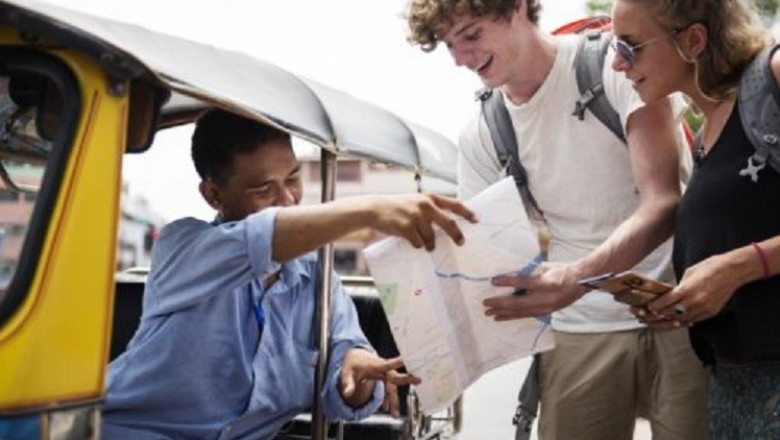Voyager and Learning Foreign Languages: The Perfect Couple

Taking the Leap
When we visit a new place, we naturally seek adventure, thrills, and unforgettable experiences. Learning the language of the country we are visiting is the first step to ensure the success of a trip.
It is possible to feel apprehensive about traveling to a certain country when the local language seems radically different from our own, making communication on the ground seem impossible. Venturing into a foreign land, where we do not speak the language, can discourage many potential travelers. The desire to be understood by the locals (and for ambitious globetrotters, if possible without an accent), the willingness to be able to communicate in the language of the country if we find ourselves in a difficult situation, and the fundamental anxiety of simply not being able to find our way around, can sometimes influence the choice of the final destination. This is how we sometimes end up preferring to go to "safe" places where French or any other language already learned (English, Spanish, etc.) is spoken, at the expense of more adventurous trips.
As an avid wanderer, these fears are an obstacle to the quest for unique and unforgettable experiences that drive me. However, it is precisely these experiences that sometimes transform us, give us a deep sense of personal achievement. Too many of my loved ones have turned their backs on adventures that would have allowed them to pursue new dreams, enriched their view of the world, and filled them with a fervor they did not know they had until then, due to the fear of not being understood.
Certainly, I understand their apprehensions: traveling requires confidence in one's ability to face the unknown. It requires exposing oneself and sometimes even being in a position of failure. It leads to a certain vulnerability because we are forced to accept that when entering foreign land, it becomes impossible to anticipate all variables or to maintain complete control over events or language.
In my case, on the contrary, it is precisely this leap into the unknown that gives me wings and pushes me to learn a language with even more diligence.

Gaining Freedom
Firstly, because it is the ultimate guarantee of freedom: indeed, no local expects a traveler to speak their language as fluently as they do. Secondly, personally, I take incredible pleasure in observing, listening, and learning a language on-site, starting almost from scratch. It is by regularly participating in conversations on-site, in local cafes or other typical places, that I have learned the most and made progress. Finally, being a traveler gives us a considerable advantage when learning a language: if you make the effort to address locals in their mother tongue, people will naturally be more inclined to help you and will be more patient with you as they recognize your enthusiasm and willingness to learn.
Speaking another language is a guarantee of freedom.
During my studies, I lived in Seoul, South Korea for two years. I can honestly affirm that it was precisely because I did not know how to speak or read a word of Korean that a small group of locals took me under their wing when I settled there. From that time, I have maintained friendships that will last a lifetime. Over time, as I shared my enthusiasm for their language with other Korean students and diligently studied it, I built deep and sincere connections with many people. Without knowing it, and especially without any real effort or willpower on my part, this experience definitively proved to me that I could achieve and overcome the impossible - or at least what I would never have believed I was capable of before.
Pushing Limits
In two years, I reached an advanced level of language proficiency, allowing me to work in a Korean professional environment. I demonstrated that I could set ambitious goals and had the necessary discipline to achieve them within the timeframe I had initially set for myself.
Additionally, it allowed me to develop a learning method that I constantly use when facing a dead-end. The beauty of learning foreign languages lies in the fact that fundamentally, the approach necessary for mastering them does not differ much from the analytical thinking that consultants apply to solve problems in the business world. What I have learned during my travels is that to succeed in learning a language, the best approach is to start by building a strong foundation. Then, it is important to complement this foundation with the assimilation of useful and applicable concepts immediately, in order to quickly move from theory to practice. The essential thing is to identify and collect everything that is absolutely necessary to be able to have a simple conversation. Finally, it is important to continue without delay or interruption, and to remain consistent in one's efforts.
"I now knew that I could set ambitious goals and had the discipline to achieve them."
In conclusion, I am aware that learning a foreign language before or during a trip requires a certain level of commitment and perseverance that few are willing to undertake. However, I can only encourage you to take the leap: you will be incredibly surprised at how natural it becomes, but above all, the immense pleasure that learning brings once you get started!























Comments
0 comment